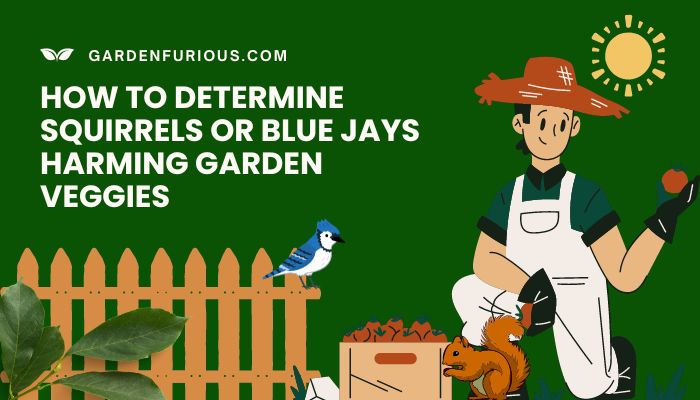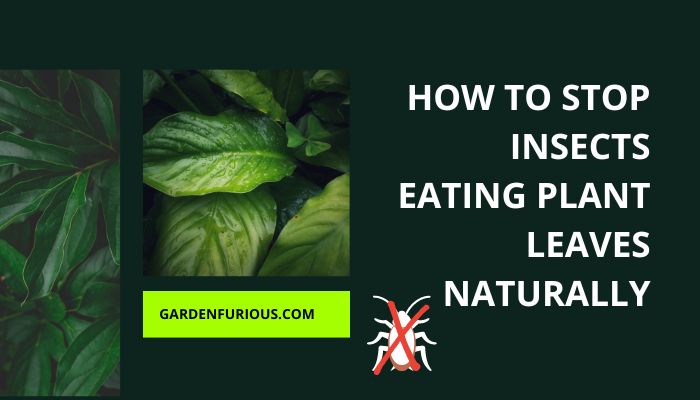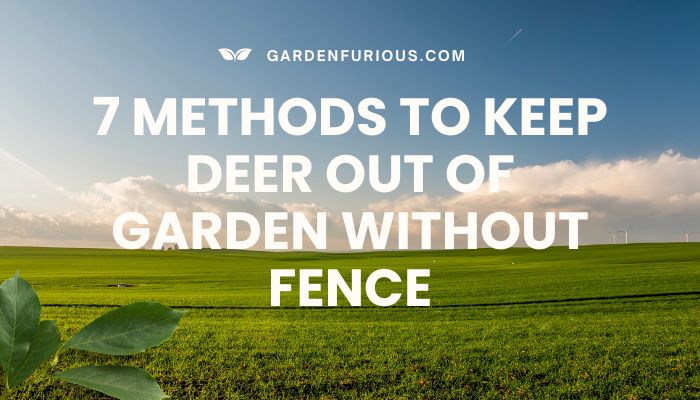If you’ve been cultivating your garden for months only to find your lettuce, tomatoes, and other veggies nibbled away, you may be dealing with unwelcome garden visitors. Squirrels and blue jays are two of the usual suspects, but how can you tell which one is behind the damage? In this article, we’ll explore ways to determine who’s messing with your garden, whether it’s those cheeky squirrels or the bold blue jays. We’ll also discuss effective methods to protect your precious plants from both.
Signs of Squirrel Damage in Your Garden
Squirrels are opportunistic feeders and known for wreaking havoc in vegetable gardens. These tiny critters are especially active in spring and fall, burying and foraging food to store for winter. They have sharp teeth and dexterous paws that allow them to steal seeds, dig up bulbs, and gnaw through stems.
Here’s how you can tell if squirrels are the culprits:
- Digging holes in the soil: Squirrels often dig small, shallow holes as they search for food or bury their stash. If you notice upturned soil, especially near newly planted seeds, this is a clear sign.
- Nibbled or missing fruits and vegetables: Squirrels have a preference for tender veggies like tomatoes, cucumbers, and beans. They usually take bites out of ripe produce or haul them away entirely.
- Gnaw marks on stems or wooden stakes: Squirrels’ constantly growing teeth require them to gnaw on things frequently, leaving small bite marks on wooden surfaces around your garden.
- Tracks and droppings: If you’re familiar with animal tracks, look for small, five-toed prints around your garden. Squirrels also leave behind small, dark droppings near their activity spots.
Squirrels are also partial to greens like lettuce and spinach, likely because of their high water content. So if your leafy greens are shredded or nibbled down to the base, you might be dealing with a squirrel infestation. One way to deter them is by using natural repellents like citrus peels or garlic and pepper sprays, which squirrels find unpleasant to their sensitive noses.
Is it Blue Jays Instead?
Blue jays are intelligent and aggressive birds, notorious for being protective of their territories. They love to snack on seeds, berries, and insects, and your vegetable garden is fair game to them. While they don’t cause as much digging damage as squirrels, they can still harm your plants.
Here’s how to spot blue jay damage:
- Pecked fruits: Blue jays often peck at tomatoes, strawberries, and berries, leaving small puncture holes rather than the chewed-out portions you’d expect from squirrels. The pecked fruit often appears bruised or damaged on the surface.
- Dislodged seeds and uprooted seedlings: Jays are attracted to freshly sown seeds and may uproot young plants while foraging. If your seeds are disappearing, this bird might be the guilty party.
- Frequent bird activity near garden beds: If you notice an uptick in blue jays frequenting your garden or even swooping aggressively around, it’s likely they’ve claimed your garden as part of their territory.
Unlike squirrels, blue jays are easier to scare off using reflective surfaces or noise-based deterrents, such as wind chimes. Another useful strategy is to set up bird feeders away from your garden to distract them.
Ways to Protect Your Garden from Squirrels and Blue Jays
Whether it’s squirrels or blue jays (or perhaps both!) raiding your vegetable patch, you can take several steps to minimize the damage and safeguard your crops.
1. Use Physical Barriers
This is one of the most effective ways to keep out both squirrels and blue jays.
- Fencing: Install wire mesh or chicken wire around your garden beds. Make sure the fence is buried at least 6 inches deep to stop squirrels from burrowing under it. For blue jays, consider draping lightweight netting over your plants.
- Row covers and cages: Use floating row covers to shield your seedlings from being uprooted by jays and squirrels. Wire cages can also protect fragile young plants.
- Mulching: Cover bare soil with a thick layer of mulch to prevent squirrels from digging. It also helps deter them from uprooting bulbs and seeds.
2. Create a Distraction
Sometimes it’s easier to lure these animals away from your prized vegetables by offering alternative food sources. Set up bird feeders filled with seeds that blue jays prefer, such as sunflower seeds, at a distance from your garden. Similarly, for squirrels, placing trays of nuts or seeds on the opposite side of your yard can keep them busy and away from your produce.
3. Natural Deterrents
There are many ways to make your garden less appealing to squirrels and blue jays.
- Spicy Sprays: Mix a solution of cayenne pepper or hot sauce and water, then spray it on your plants. Birds like blue jays won’t appreciate the spicy taste, and squirrels will avoid anything that irritates their sensitive noses.
- Scent-Based Repellents: For squirrels, try scattering citrus peels or using essential oils like peppermint or eucalyptus around your garden. Jays are repelled by shiny, moving objects, so reflective tape, old CDs, or aluminum foil can be hung around your garden to startle them.
- Predator Decoys: Fake owls or hawks can scare off both squirrels and birds if placed strategically around your garden. Motion-activated sprinklers are another humane option to keep these pests at bay.
FAQs
How do I know if it’s squirrels or birds damaging my garden? If you find shallow holes or missing vegetables, it’s likely squirrels. However, if you see puncture marks in your fruits or notice seeds being eaten, blue jays could be the culprits. Observing your garden regularly can help you catch the offender in action.
What vegetables do squirrels prefer? Squirrels love munching on soft, moisture-rich veggies like tomatoes, cucumbers, and lettuce. They also enjoy fruit and tender plant shoots.
How can I keep both squirrels and blue jays away from my garden? Combining physical barriers, such as wire fencing, with deterrents like spicy sprays and decoys can be highly effective. Providing alternative food sources elsewhere in your yard can also reduce the likelihood of these critters targeting your crops.
Conclusion
Dealing with garden pests like squirrels and blue jays can be frustrating, but identifying the culprit is the first step in protecting your garden. Whether it’s through physical barriers, distractions, or natural repellents, there are plenty of ways to deter these clever animals from munching on your precious veggies. Keep experimenting with different techniques until you find the perfect solution for your garden!





